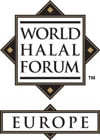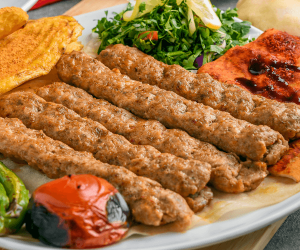Country: UNITED KINGDOM, EUROPE
A year ago the World Halal Forum resolved “to work towards a European Halal Regulations and Accreditation system, starting with a single country as a pilot project, with the country proposed being the United Kingdom.”
 |
This week, Britain’s halal future will be shaped by the global halal industry when the Forum visits London for the first time. Delegates from around the world will gather on 10-11 November 2010 at Earls Court, London with the theme “Halal Products & Services – Going Mainstream”.
Headquartered in Malaysia, the WHF has established itself over the past five years as the premier halal industry event. In response to the consistent increase in activity in the European halal markets, the WHF held its first Forum outside of Malaysia in The Hague in November 2009. The event brought together 146 participants from 26 countries including government heads, industry leaders and academics.
According to a WHF report, last year’s Forum resulted in a flurry of activities in the halal sector in the UK and Europe. Moves by both Quick and KFC to bring halal into the mainstream fast-food sector, and an increased presence of halal products in the major supermarket chains, as well as impending legislation in the European Parliament, all make halal an increasingly important topic.
Many non-Muslims, including Christians, have expressed concern about religiously slaughtered meat and its introduction, often unannounced, into supermarkets, restaurants, sporting venues and schools.
Halal for all
Statements released by the Forum claim that halal products are becoming mainstream and awareness of them is increasing. “As Halal food and products are not only for Muslims, but rather for everyone in the world regardless their religious affiliation, makes Halal a perfect match for Europe’s multicultural consumer market.”
“Europe, with a Muslim population of 51.2 million has grown by 140 per cent since the last decade and the size of the Halal food market in Europe is estimated to reach $6.7 billion (£4.2 billion) this year.”
The WHF report says the greater purchasing power of European Muslims and the growing number of educated Muslims in the labour market have contributed towards the strong growth of halal food consumption, while its trade potential is rapidly increasing.
According to The Muslim Weekly, Dr Abdhalhamid Evans, the Project Director of World Halal Forum 2010, says that a single reputable Muslim-led agency will have to work with government and industry, protect consumers, lobby for clear legal status for halal, and above all present a positive image for it. Regarding the EU proposal of labelling non-stunned meat, he called the enforcing of regulation for only one group “discriminatory”.
Operation Nehemiah is more concerned by the fact that a large proportion of meat in our countries is halal without our knowing anything about it. This massive change in the food industry in many Western countries has occurred over recent years without consumers being consulted.
The halal food industry and the certification process is big business. Halal covers more than meat slaughter; it also includes cosmetics, pharmaceuticals, fashion, travel and finance. Halal is essentially sharia (Islamic law) as it pertains to products. Certification agencies earn fees, and these slaughter costs are passed on to the consumer. When you buy halal food, a portion of your money goes to Islamic agencies and you may unwittingly be funding Islamic activities.
An economy by itself
In last year’s WHF Germany’s Intertek Food Services president, Dr. Jochen P. Zoller, said
“The trend of producing Halal products has been picked up by large corporations like Nestlé GSK and Carrefour. There’s a huge potential in consumer food products and now it has expanded to personal care, healthcare, and pharmaceutical products. Halal is an economy by itself.”
The report states that leading European retailers such as Tesco in the UK and Carrefour and Groupe Casino in France target Muslim customers by including halal sections in their hypermarkets. In 2005 Tesco UK introduced a halal section in some of its outlets (117 hypermarkets or 6 per cent of the total number of outlets). By the end of 2009, the percentage was expected to increase to more than 20 per cent. Asian companies, including some from Malaysia, are trying to fulfil the demand for halal products by these outlets for European consumers.
Malaysian Prime Minister Yab Dato’Seri Najib Tun Abdul Razak asserted, “We need to think beyond industries and move into the larger realm of a Halal Economy. A value based economy rooted in trust, integrity and fairness. And why not? Halal has thrived and will continue to thrive on innovation.”
Decisions are now visible
WHF state that halal food is increasingly available in mainstream retail outlets throughout Europe, including in the supermarkets’ “own label? products. They say, “It is important to recognise that what we are seeing now is in many cases the result of decisions made several years ago; such is the time-frame for big corporate decisions to become visible in the marketplace.”



